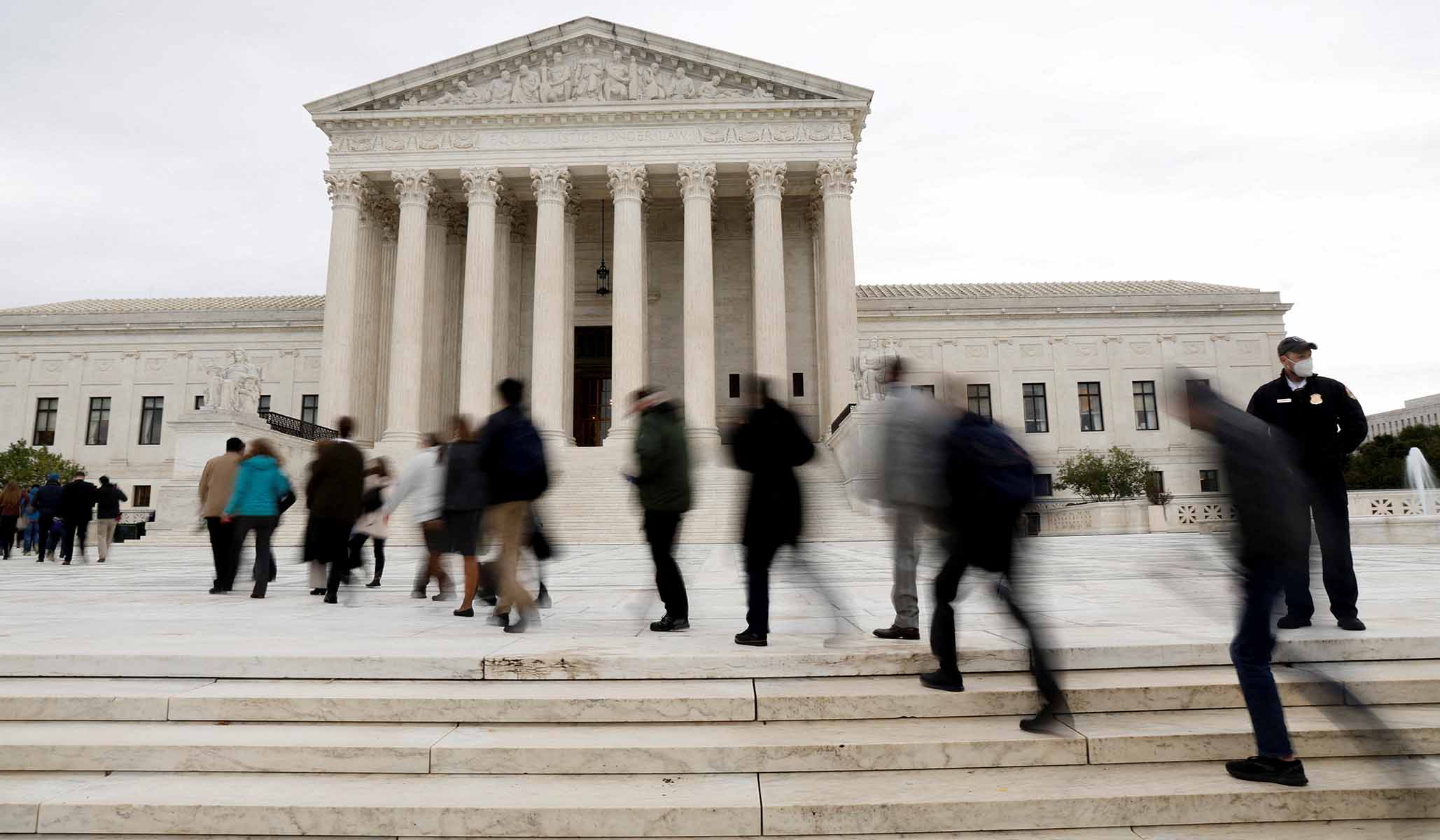The Supreme Court ruled Friday that Texas and Louisiana do not have standing to sue the Biden administration over a deportation policy it instituted in 2021.
The case — United States v. Texas — was decided 8-1 and stems from a Department of Homeland Security policy that prioritizes certain groups of illegal immigrants for arrest and removal — namely, suspected terrorists, dangerous, and those recently caught at the border.
In a memo, Secretary Alejandro Mayorkas explained DHS does not have the resources to apprehend and deport all of the 11 million illegal immigrants living in the U.S. Texas and Louisiana claimed that this violated federal statutes that purportedly require DHS to arrest more illegal immigrants pending their removal.
Justice Brett Kavanaugh, writing for the majority, described the challenge in this way: “The States essentially want the Federal Judiciary to order the Executive Branch to alter its arrest policy so as to make more arrests.”
“But this Court has long held ‘that a citizen lacks standing to contest the policies of the prosecuting authority when he himself is neither prosecuted nor threatened with prosecution,'” explained Kavanaugh. “Consistent with that fundamental Article III principle, we conclude that the States lack Article III standing to bring this suit.”
The justice also noted that the states cite no precedent, calling the lawsuit “extraordinarily unusual.” Kavanaugh was joined in his opinion by Chief Justice Roberts as well as Justices Sonia Sotomayor, Ketanji Brown Jackson, and Elena Kagan.
The Supreme Court thus overruled the district court, which had held for the states.
Justice Neil Gorsuch, joined by Justices Amy Coney Barrett and Clarence Thomas, wrote a concurring opinion that the states do not have standing. Gorsuch argued that this is the case because federal courts have no authority to redress the injuries suffered by the challengers in this case. Barrett also issued a concurring opinion.
Only Justice Samuel Alito dissented. “This sweeping Executive Power endorsed by today's decision may at first be warmly received by champions of a strong Presidential power, but if Presidents can expand their powers as far as they can manage in a test of strength with Congress, presumably Congress can cut executive power as much as it can manage by wielding the formidable weapons at its disposal. That is not what the Constitution envisions,” wrote Alito.


![Breaking: States Lack Standing to Challenge Deportation Policy, Supreme Court Rules in Win for Biden Administration]() Reviewed by Diogenes
on
June 23, 2023
Rating:
Reviewed by Diogenes
on
June 23, 2023
Rating:












No comments: